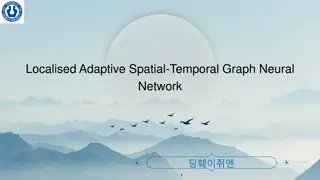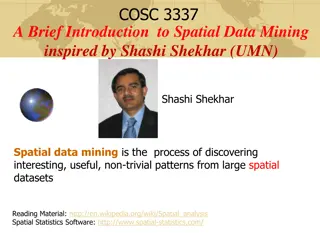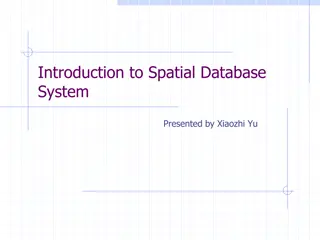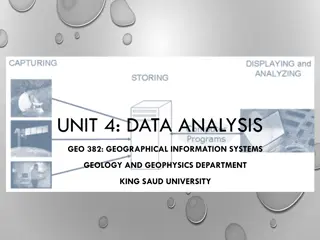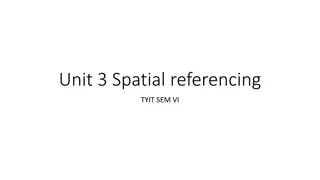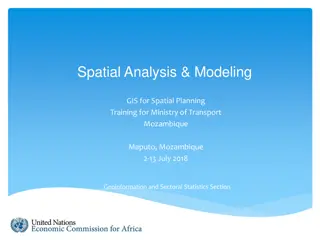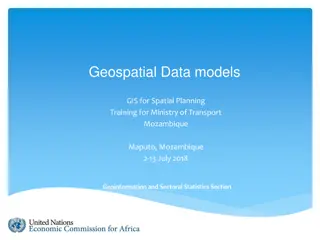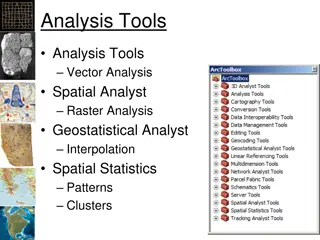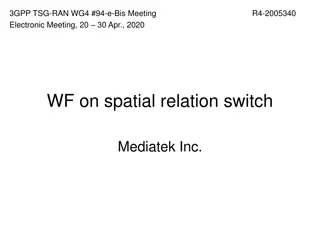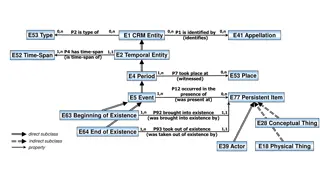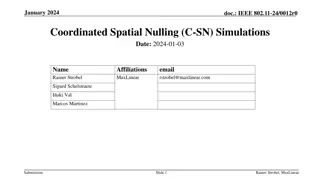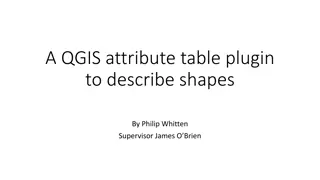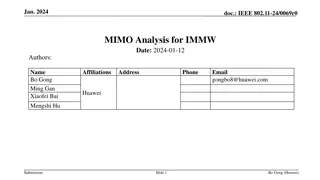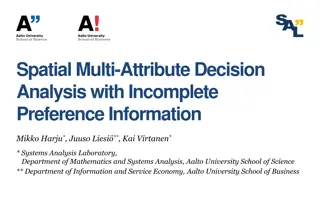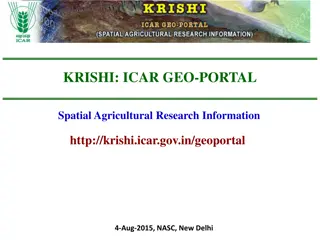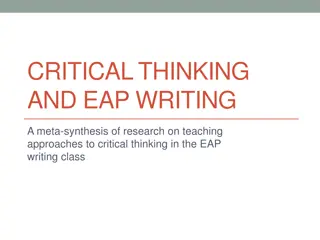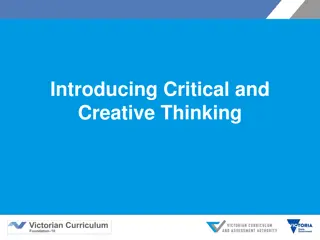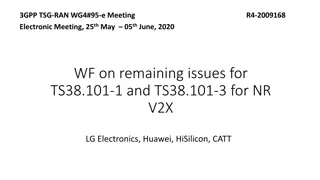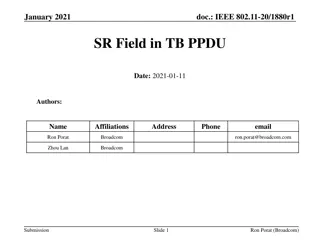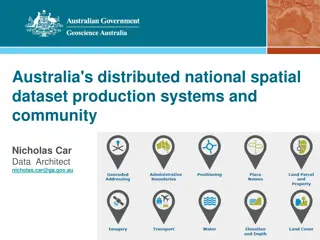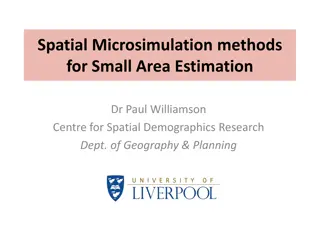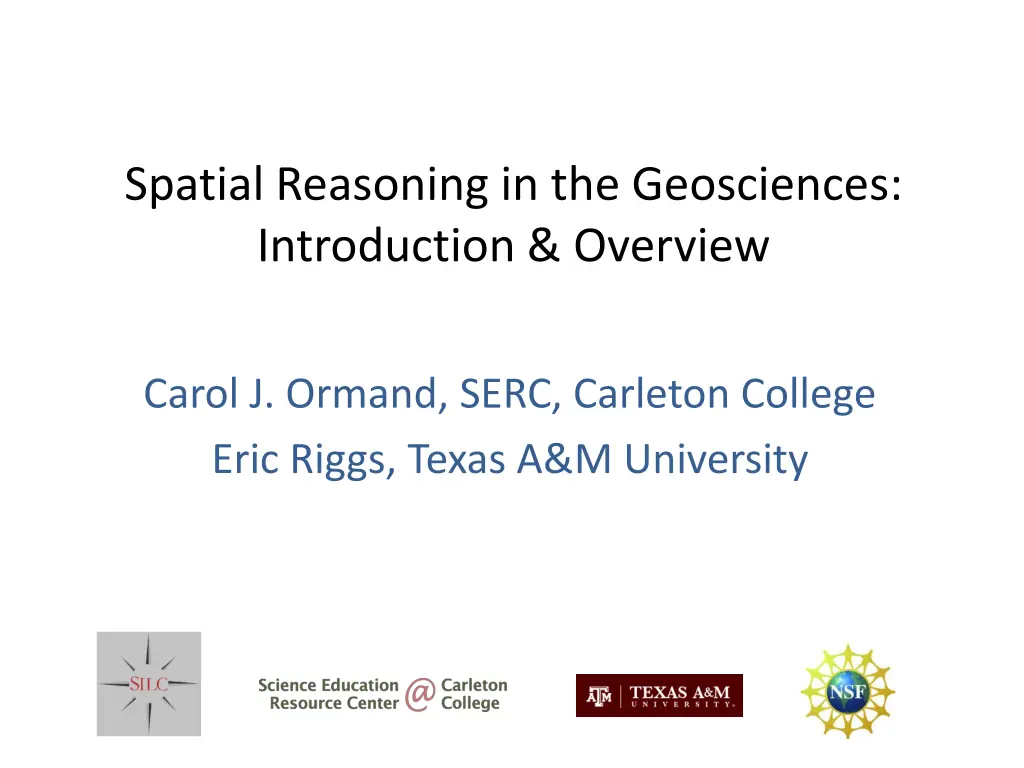
Spatial Reasoning in the Geosciences: Overview & Workshop Goals
Explore spatial thinking in the geosciences with insights on measuring spatial skills, developing expertise, and a detailed workshop agenda. Understand how to enhance student success in spatial reasoning through various teaching activities and strategies.
Download Presentation

Please find below an Image/Link to download the presentation.
The content on the website is provided AS IS for your information and personal use only. It may not be sold, licensed, or shared on other websites without obtaining consent from the author. If you encounter any issues during the download, it is possible that the publisher has removed the file from their server.
You are allowed to download the files provided on this website for personal or commercial use, subject to the condition that they are used lawfully. All files are the property of their respective owners.
The content on the website is provided AS IS for your information and personal use only. It may not be sold, licensed, or shared on other websites without obtaining consent from the author.
E N D
Presentation Transcript
Spatial Reasoning in the Geosciences: Introduction & Overview Carol J. Ormand, SERC, Carleton College Eric Riggs, Texas A&M University
Who are these characters at the front of the room?
Workshop Goals Workshop participants will: Understand what we do and don t know about how students succeed in spatial reasoning Be able to use tools and instruments for formative assessment, to measure student spatial thinking skills Be able to generate teaching activities / apply appropriate strategies to improve student success in spatial reasoning Provide feedback to the research community about emerging priorities for further investigation of spatial skills
Workshop Agenda Thursday: Introduction: What is spatial thinking? How is it measured? What do we know about developing spatial thinking skills? Module 1: Penetrative thinking Module 2: Mental rotation Friday: Module 3: Contour maps (including topographic maps) Module 4: Assessing spatial thinking (methodology & tools) Resources and next steps
What is Spatial Thinking? (How can we characterize spatial thinking tasks?) There are a variety ways to categorize spatial thinking tasks .. For example: Kastens and Ishikawa, 2006: Spatial thinking in the geosciences and cognitive sciences: A cross- disciplinary look at the intersection of the two fields Kozhevnikov et al., 2005: Spatial versus object visualizers: A new characterization of visual cognitive style Shipley et al., 2013: Structural geology practice and learning, from the perspective of cognitive science
How are Spatial Skills Measured? SILC tests and instruments page: http://www.silccenter.org/index.php/testsainstruments You ll see several examples in this workshop.
What Do We Know About Developing Spatial Thinking Skills / Expertise? Spatial skills are malleable There are strategies/tools that help

